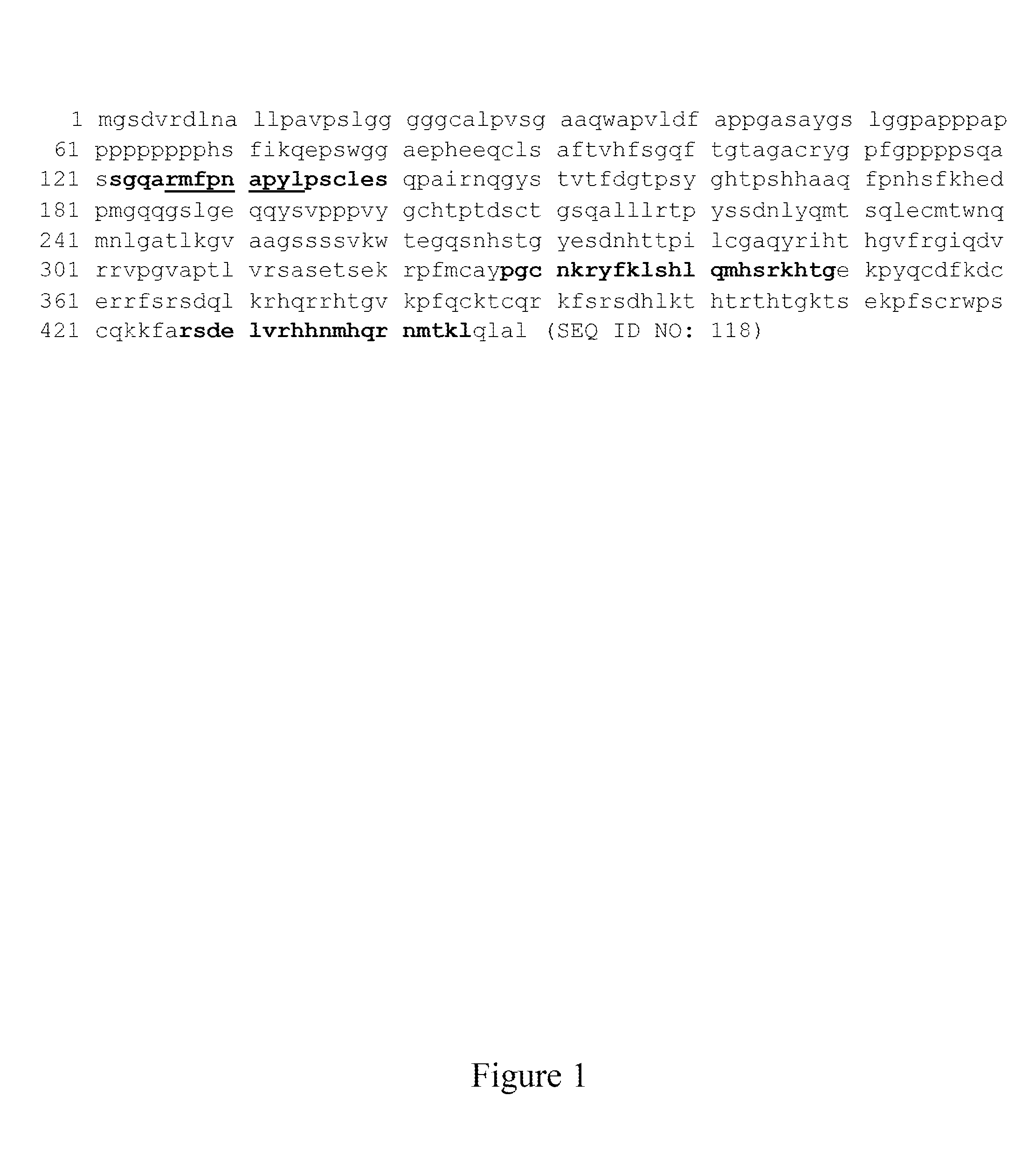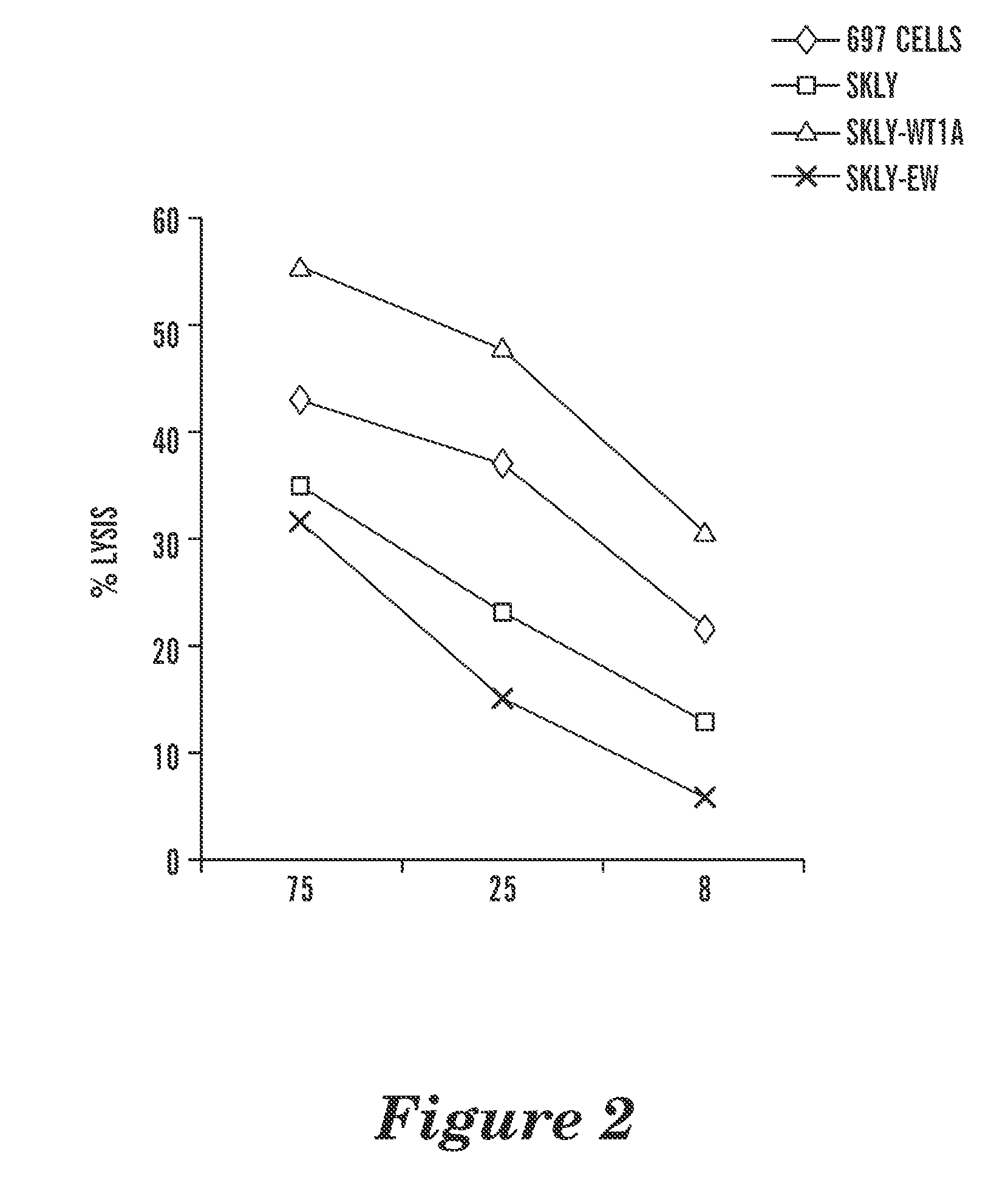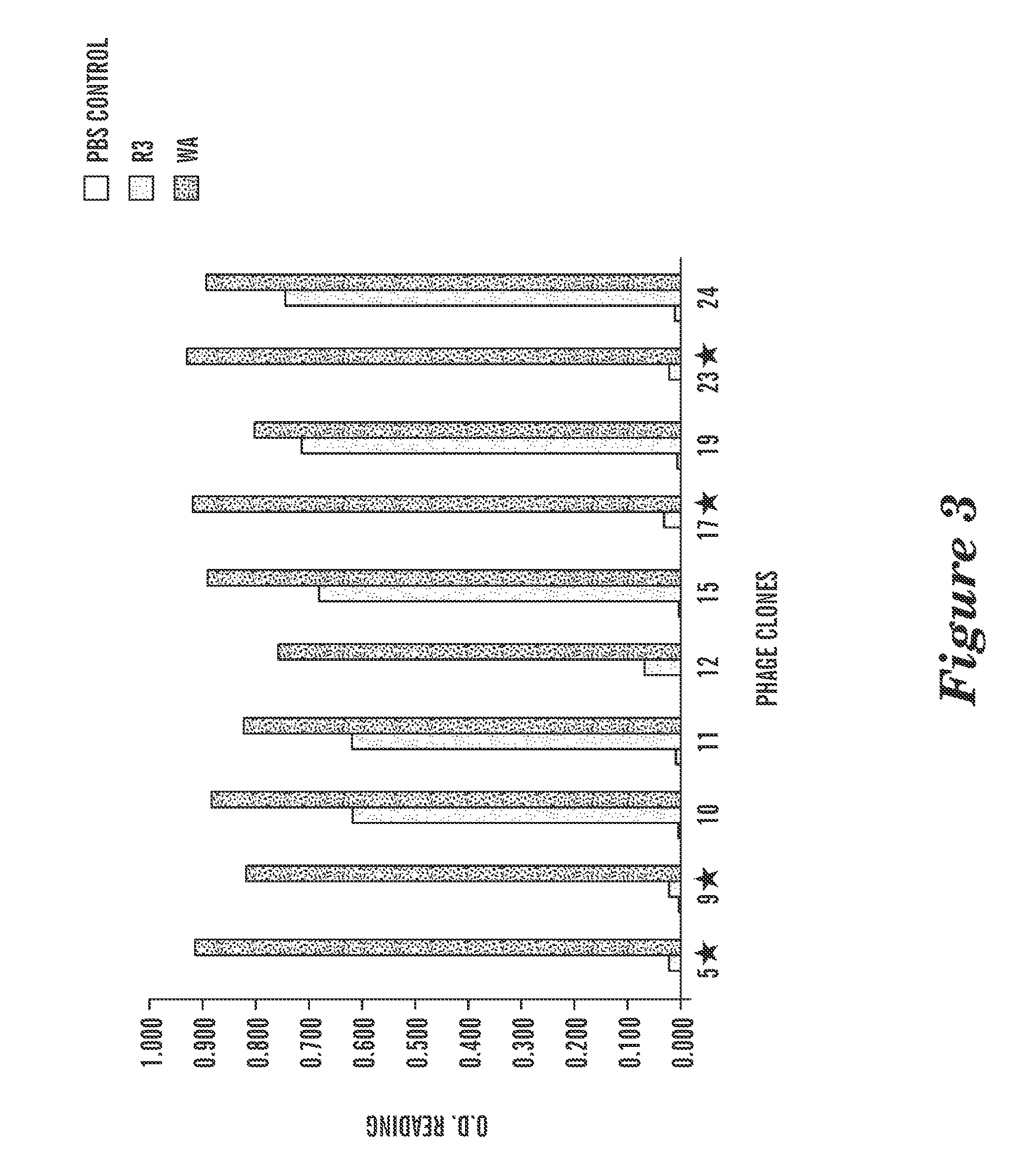T cell receptor-like antibodies specific for a WT1 peptide presented by HLA-A2
a technology of t cell receptors and antibodies, applied in the field of antibodies against cytosolic proteins, can solve the problem of inaccessibility to classical antibody therapy
- Summary
- Abstract
- Description
- Claims
- Application Information
AI Technical Summary
Benefits of technology
Problems solved by technology
Method used
Image
Examples
example 1
Selection of ScFv Specific for WT1p / A2 Complex Using a Fully Human Phage Display Library.
[0194]Phage display against HLA-A0201 / WT1 peptide complex was performed for 3-4 panning rounds to enrich the scFv phage clones binding to HLA-A0201 / WT1 peptide complex specifically. Individual scFv phage clones positive for the WT1 peptide / A2 complex were determined by ELISA and the clones that possessed unique DNA coding sequences were subjected to further characterization. To test if the ScFv bound to the WT1p / A2 complex on live cells, the positive phage clones were tested for binding to a TAP deficient, HLA-A0201-positive cell line, T2. T2 cells can only present the exogenous peptides and therefore have been widely used for detection of specific epitopes presented by HLA-A2 molecules. A total 35 phage clones were screened on T2 cells and 15 clones showed specific binding to T2 cells pulsed with only WT1 RMF peptide, but not to T2 cells alone or pulsed with control RHAMM-3 peptide (FIG. 4). Th...
example 2
Generation of Full-Length Human IgG1.
[0195]Immunological function such as CDC and ADCC depend on the Fc domain of bivalent IgG. In addition, bivalent mAbs offer stronger antigen-binding avidity than monomeric scFv Abs. Therefore, 6 ScFv phage clones among 15 positive phage clones were selected to produce the full-length human monoclonal IgG1 in HEK293 and Chinese hamster ovary (CHO) cells. In brief, variable regions of the mAbs were sub-cloned into mammalian expression vectors with matching human lambda or kappa light chain constant region and human IgG1 constant region sequences. Purified full length IgG antibodies showed expected molecular weight under both reducing and non-reducing conditions (FIG. 8). Five clones were successfully engineered into human IgG1.
example 3
Specificity and Binding Avidity of the IgG1 mAb
Binding to Human Cell Lines.
[0196]T2 cells, pulsed with or without RMF or RHAMM-3 peptides initially were used to determine the binding specificity of the mAb. Three out of five human IgG1, including WT1 ab1, showed specific binding to the T2 cells that were pulsed only with WT1 peptide, but not to T2 alone or T2 pulsed with control peptide RHAMM-R3. The binding avidity of the mAb were substantially enhanced (50 to 100 fold), compared to their parental scFv phage clones. Two mAbs among the five showed binding to T2 cells alone or pulsed with the control peptide RHAMM-R3, although the binding was greatly enhanced by pulsing the cells with RMF peptide. This suggested that these two mAb also had high avidity for epitopes on the HLA-A2 molecule alone and therefore were excluded from further investigation. This was not unexpected, as it has been a common problem for producing such mAb against peptide / MHC complexes, given the predominance of ...
PUM
| Property | Measurement | Unit |
|---|---|---|
| concentrations | aaaaa | aaaaa |
| pH | aaaaa | aaaaa |
| concentration | aaaaa | aaaaa |
Abstract
Description
Claims
Application Information
 Login to View More
Login to View More - R&D
- Intellectual Property
- Life Sciences
- Materials
- Tech Scout
- Unparalleled Data Quality
- Higher Quality Content
- 60% Fewer Hallucinations
Browse by: Latest US Patents, China's latest patents, Technical Efficacy Thesaurus, Application Domain, Technology Topic, Popular Technical Reports.
© 2025 PatSnap. All rights reserved.Legal|Privacy policy|Modern Slavery Act Transparency Statement|Sitemap|About US| Contact US: help@patsnap.com



